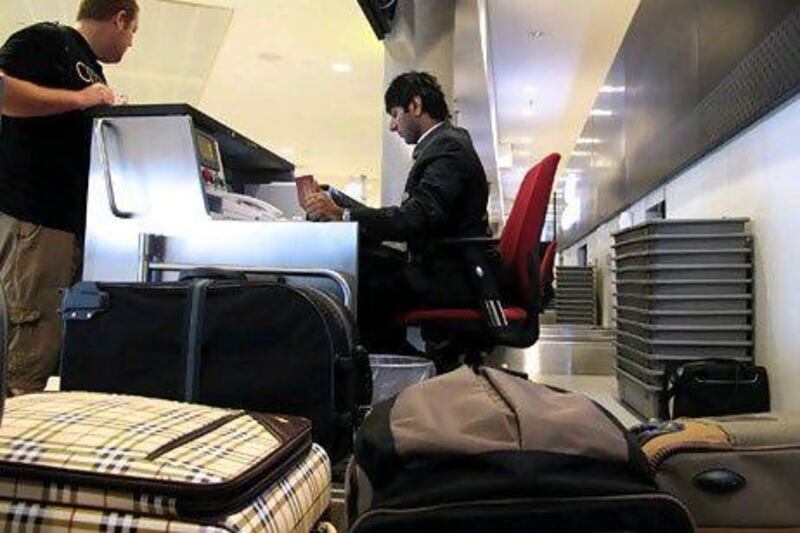The summer crush is giving way to slower ticket sales during the Ramadan period as airlines and the travel trade deal with the constantly fluctuating trends in air travel.
Travel agents describe a year in which demand peaks slide into valleys then rise back again as issues such climate, school holidays and religious periods play their part.
"Demographic trends and the climate play a big role in determining the seasons," said Ibrahim Nalkhande, the chief operating officer of travel at the Planet Group in Dubai.
January is a time of low demand for airlines and travel agents, with many people staying put as children are in school and the December holiday season has just finished.
Demand builds up slowly in February and March as corporate travel rises.
While April is still low season, travel blooms for a few short days around the Easter holiday, with many schools letting students out and families travelling abroad.
Mr Nalkhande described May and June as "super-peak" months and July as a peak month with the school term ending and Gulf residents taking annual leave to beat the blistering summer temperatures.
Travel starts to cool down in August and continues the trend in September, with another short burst of travel during the Eid Al Fitr holiday marking the end of Ramadan.
At this time destinations such as Turkey, Greece, Bangkok and Singapore are in high demand.
In the final three months of the year, air travel heats up again because of Islamic and Christian holidays and school breaks.
Some airlines are affected more than others by regional travel patterns. Emirates Airline, Qatar Airways, Etihad Airways and Gulf Air all serve global markets, carrying passengers between North America and Europe to Africa and the Far East.
This partly insulates them from low demand periods in their home countries. But other airlines, such as flydubai, Air Arabia, Gulf Air and Oman Air, cater more exclusively to the region and are thus more heavily affected. Whereas next month some UAE residents will travel abroad with their families before the start of the school year, the onset of the Ramadan holy period will make the month a "mixed bag", Mr Nalkhande said.
Corporate travel will be down, as "the Ramadan factor will discourage businessmen to travel frequently", said Mr Nalkhande. One reason is that the region reduces its working hours from eight hours a day to six, he said. "It definitely has an impact."
In addition, most UAE nationals arrange their travel plans for June and July so they can be home during the holy month. "They try to conclude their vacations prior to Ramadan," Mr Nalkhande said. "Very few try to travel during Ramadan due to spiritual and religious factors. They like to stay in their home countries."
As a result, travel agencies and airlines must target other types of travellers, said Zubair Musliyarakath a corporate accounts manager at Orient Travel in Sharjah.
"It is like any other time in the year when we shift focus from one side to another," he said.
In this case, Orient will stop promoting summer holidays to places such as Switzerland, Australia, Thailand and Malaysia. "Instead, we will switch our focus to Umrah," he said referring to religious pilgrimage traffic to Saudi Arabia.
"During Ramadan some UAE nationals and middle-class Asian families go to Mecca and back. That is good business for us."
Mr Musliyarakath's company is promoting travel to places such as Malaysia and Turkey for families to spend the holy month.
"There is still the same Ramadan feeling there and the weather is better," he said, adding that the two countries' Arabic food and cultural proximity to the Gulf were put on show recently during a marketing blitz at several malls in Sharjah and Ajman. "That is the new trend we are promoting." Airlines often advertise special Ramadan deals, as Gulf Air did last week.
"As a gesture of goodwill to our customers during this time we have created a series of tailor-made offers for each type of traveller instead of a flat discount, which is usual during this period," said Abdulmalik Al Saei, the senior sales manager at Gulf Air. "I am sure these value-for-money packages will be a hit among our customers."
However, Mr Nalkhande said the rationale for airlines was simple: "It is a simple philosophy, supply and demand. Airlines do not do promotions if load factors are healthy - if demand is good, there will not be promotion," he said.
Gulf Air's "family package" offers parents the chance to purchase tickets for up to two children for 1 Bahraini dinar (just under Dh1) per child.
A "couples" promotion allows two travellers to receive a 50 per cent discount on the second ticket. And it also offers discounts under a "weekend shoppers" scheme with a 25 per cent discount on GCC flights as well as Bangkok and an "early birds" special offering a 20 per cent discount on tickets purchased more than two weeks in advance.






